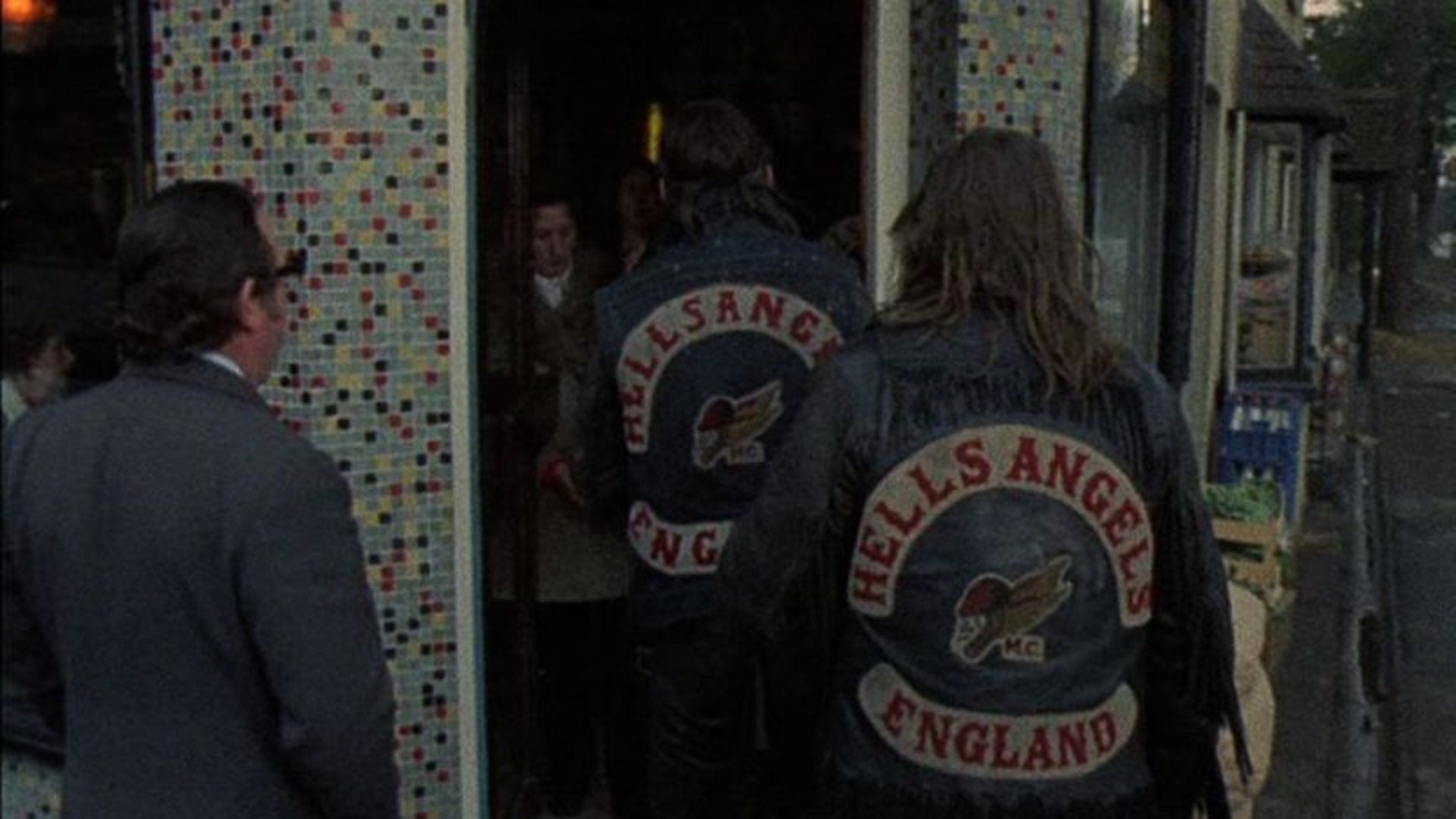

We may earn revenue from the products available on this page and participate in affiliate programs. Learn more ›
The term “motorcycle gang” drags up some pretty fantastical imagery. Brawls. Bikes. Babes. In reality 99 percent of motorcycle clubs today are upstanding, sometimes outstanding, members of the community. Back in the Seventies, though, the Hells Angels were actually some pretty rough dudes. Well, except in England.
This short 1973 BBC documentary, which is not directed by Christopher Guest but could be, follows fledgling biker gang culture in the U.K. It’s told through four members of the first officially chartered Hells Angels club across the pond. (Formally: “The Hells Angels Motorcycle Club of England, Established 1969, by Transatlantic Decree.” Because England.) What can we learn about motorcycle culture during this 24-minute film?
Being a Hells Angel in England was hilarious and sort of a bummer.
Our main characters include Vice President “Mad” John Cork, a former juvenile delinquent; Sergeant-at-Arms Carl, who is cross-eyed; some guy named Nick on temporarily release from a mental hospital; and Pappy, whose wife is nonchalantly leaving him. Follow them on a holiday ride to Wellsbury, but not before going two-up on a small Triumph, passing out from the pain of getting a tattoo, posing for glamor photos with an airgun, and borrowing a television set from one of their moms. They commit crimes as serious as trespassing. At one point, they’re scolded at—and ejected from—a local café during teatime, then have a courteous interaction with a police officer. Around the film’s halfway point, they take acid, strip naked and embrace. To his ruffian credit, Pappy does have a swastika banner hidden in his suitcase. So, you know, watch out for that guy.
Mostly, they just look like a band of tall children trying (very, very hard) to be “bad” without actually breaking any laws or causing trouble. The only person they’re convincing is the narrator.

